About | Elements of the DPLA | Secretariat | Staff | Steering Committee | Board
The DPLA Steering Committee was established in October 2010 to guide efforts toward the creation of a DPLA. This Committee has since grown to a body of 16 non-profit and foundation leaders, government officials, and notable academic and public library directors. In October 2012, the Steering Committee formally passed leadership of the DPLA over to the inaugural Board of Directors. Members of the Steering Committee continue to play an essential role in the DPLA’s transition from a planning initiative to an independent non-profit organization, speaking on behalf of the DPLA at public and private engagements, offering advice on strategy, and helping to build the DPLA’s growing community of supporters and participants.
Paul Courant
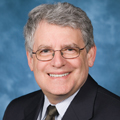 Harold T. Shapiro Professor of Public Policy and Dean of Libraries at the University of Michigan
Harold T. Shapiro Professor of Public Policy and Dean of Libraries at the University of Michigan
Paul Courant is Dean of Libraries, Harold T. Shapiro Professor of Public Policy and Arthur Thurnau Professor of Economics, as well as former Provost at the University of Michigan. Courant’s academic work covers a broad range of topics in economics and public policy. Most recently he has been studying the economics of libraries and the effects of new information technologies on scholarly publication and academic libraries. He has been closely involved with the development of the HathiTrust.
Robert Darnton
 Carl H. Pforzheimer University Professor and Director of the Harvard University Library
Carl H. Pforzheimer University Professor and Director of the Harvard University Library
Robert Darnton completed an AB at Harvard and a doctorate at Oxford. After a short stint as a newspaper reporter, he was a junior fellow at Harvard, then taught history at Princeton until 2007, when he came to Harvard as director of the university library. Of his recent books, the one most likely to interest readers concerned with the DPLA is “The Case for Books: Past, Present, and Future.”
Photo Copyright © 2010, Brian Smith, Boston
Carla Hayden
 Chief Executive Officer of the Enoch Pratt Free Library (Baltimore, Maryland)
Chief Executive Officer of the Enoch Pratt Free Library (Baltimore, Maryland)
Prior to coming to Baltimore, Dr. Hayden was the First Deputy Commissioner and Chief Librarian of the Chicago Public Library. A graduate of Roosevelt University, Dr. Hayden earned her MA and Ph.D. degrees from the Graduate Library School of the University of Chicago. She is a member of the National Museum and Library Services Board and American Library Association (ALA). She was elected President of ALA for the 2003-04 term.
Charles Henry
 President of the Council on Library and Information Resources (CLIR)
President of the Council on Library and Information Resources (CLIR)
Charles J. Henry is President of the Council on Library and Information Resources (CLIR), an independent, nonprofit organization dedicated to improving the management of information for research, teaching, and learning. He serves on the advisory board of Stanford University Libraries and on the boards of NITLE and CRL. Previously, Dr. Henry was vice provost and university librarian at Rice University. He has a Ph.D. in comparative literature from Columbia University.
Luis Herrera
 City Librarian for the City and County of San Francisco
City Librarian for the City and County of San Francisco
Luis Herrera is the City Librarian for the City and County of San Francisco. Prior to assuming his current position, he served for ten years as the Director of the Department of Information Services of the Pasadena Public Library. Previously, he was the Deputy Director of the San Diego Public Library and has also served in public library management in Long Beach, California and El Paso, Texas. Herrera is also a former middle school librarian.
Brewster Kahle
 Founder of the Internet Archive
Founder of the Internet Archive
Brewster Kahle is the founder and Digital Librarian of the Internet Archive, established in 1996. An entrepreneur and Internet pioneer, Brewster invented the first Internet publishing system and helped put newspapers and publishers online in the 1990s.
Michael A. Keller
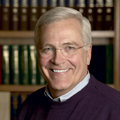 Ida M. Green University Librarian, Director of Academic Information Resources at Stanford University
Ida M. Green University Librarian, Director of Academic Information Resources at Stanford University
Since 1993, Michael A. Keller has been Stanford’s University Librarian, Director of Academic Information Resources, Founder/Publisher of HighWire Press, & Publisher of the Stanford University Press. Educated at Hamilton College (biology & music), SUNY/Buffalo (musicology), & SUNY/Geneseo (librarianship), he has led libraries at Cornell, UC/Berkeley, Yale, & Stanford. During his watch at Stanford numerous innovative exploitations arose and are still flourishing, among them: HighWire Press; LOCKSS/CLOCKSS; CourseWork (Sakai); the General Agreement on Tariffs and Trade Digital Archive; and the Matthew Parker Online Library project at Corpus Christi College, Cambridge University.
Deanna Marcum
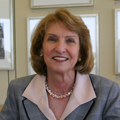 Managing Director, Ithaka S+R
Managing Director, Ithaka S+R
As Managing Director of Ithaka S+R, Deanna Marcum leads the research and consulting services that assist universities and colleges, libraries, publishers, and cultural institutions as they make the transition to the digital environment. She heads a staff of 10 program directors and analysts with wide-ranging expertise. From 2003-2011, Deanna served as associate librarian for Library Services, Library of Congress. She previously served as Director of Public Service and Collection Management at the Library of Congress and Dean of the School of Library and Information Science at The Catholic University of America.
Maura Marx
 Director, DPLA Secretariat; Berkman Center Fellow; Executive Director, Open Knowledge Commons
Director, DPLA Secretariat; Berkman Center Fellow; Executive Director, Open Knowledge Commons
Maura Marx is a Berkman Center Fellow and the Executive Director of the Open Knowledge Commons. Previously, she was responsible for starting the Boston Public Library’s Digital Services Program. She has lived and worked in Europe for organizations including the Guggenheim Museum (Salzburg), Warner Bros. Austria, and Amadeus, Inc. in strategic planning, technology planning, development and public relations.
Jerome McGann
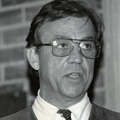 John Stewart Bryan University Professor at the University of Virginia
John Stewart Bryan University Professor at the University of Virginia
Jerome McGann is one of the founding members of IATH and the founding Director of NINES. Creator of the online Rossetti Archive, he is a member of the American Academy and publishes widely, online and in print, about digital humanities. His traditional field scholarship centers in British and American Literature and Culture from 1750 to the present.
Dwight McInvaill
 Director of the Georgetown County Library (South Carolina)
Director of the Georgetown County Library (South Carolina)
Dwight McInvaill serves as South Carolina’s Georgetown County Library Director. In 2007, the Bill and Melinda Gates Foundation featured his library in an innovation video. In 2008, First Lady Laura Bush gave his library a National Medal for Library Service. In 2009, the Carnegie Foundation and New York Times presented him with an “I Love My Librarian Award.” He serves currently on the Association for Rural and Small Libraries Board. He believes in the power of libraries to transform lives.
John Palfrey (Chair)
 Head of School, Phillips Academy, Andover, MA
Head of School, Phillips Academy, Andover, MA
John Palfrey is the co-author of “Born Digital: Understanding the First Generation of Digital Natives” (Basic Books, 2008), “Access Denied: The Practice and Politics of Internet Filtering” (MIT Press, 2008), and “Access Contested: The Shaping of Power, Rights, and Rule in Cyberspace” (MIT Press, 2010), among others. His research and teaching is focused on Internet law, intellectual property, and international law.
Peggy Rudd
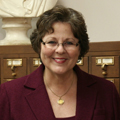 Director and Librarian of the Texas State Library and Archives Commission
Director and Librarian of the Texas State Library and Archives Commission
Peggy D. Rudd has served as the Director and Librarian of the Texas State Library and Archives Commission since October 1999. Her previous library service includes the Steen Library at Stephen F. Austin State University, the Undergraduate Library at the University of Texas at Austin, Austin Public Library, Central Texas Library System, Northeast Texas Library System, the Library of Virginia, and the State Library of Florida. Ms. Rudd has a B.A. in English and Political Science from Stephen F. Austin State University in Nacogdoches, Texas, and received her M.L.S. from the University of Texas at Austin.
Amy E. Ryan
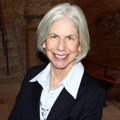 President of the Boston Public Library
President of the Boston Public Library
Amy E. Ryan became the first female president of the Boston Public Library in 2008. Amy Ryan has over 30 years of public library management experience. Prior to becoming President of the Boston Public Library, she was the Director of the nationally recognized Hennepin County Library in Minnesota from 2005 to 2008. Prior to that, Ms. Ryan served in leadership positions over 28 years with Minneapolis Public Library.
David Spadafora
President and Librarian, The Newberry
David Spadafora, a historian of European thought, became President and Librarian of the Newberry in October 2005. A Professor of History at Lake Forest College since 1990, he served as President of the College from 1993 to 2001 and Dean of the Faculty from 1990 to 1993. Mr. Spadafora’s scholarship focuses on English, Scottish, and French thought from the late seventeenth to the mid-nineteenth century. His book on British Enlightenment-era historical optimism, The Idea of Progress in Eighteenth-Century Britain, was named a Choice Outstanding Book in 1991. He is at work on a book-length project about the relationship between religion and secularism in Britain during the eighteenth century. Mr. Spadafora is a graduate of Williams College and earned his PhD from Yale University, where he was a member of the History Department and an administrator during the 1980s.
Doron Weber (Vice Chair)
 Vice President, Programs at the Alfred P. Sloan Foundation
Vice President, Programs at the Alfred P. Sloan Foundation
Doron Weber oversees efforts in Public Understanding of Science and Technology, Universal Access to Knowledge and International Science Cooperation. A sponsor of books, television documentaries and radio shows, Mr. Weber created a nationwide theater and film program. In Digital Information Technology, Mr. Weber supports the Digital Public Library of America, Wikipedia, the Internet Archive, the Library of Congress and the Espresso Book Machine. A new program in International Science Cooperation focuses on connecting scientists and engineers in conflict regions. Mr. Weber was educated at Brown University, the Sorbonne and Oxford, where he was a Rhodes Scholar. He has authored several books, most recently a memoir, Immortal Bird, forthcoming from Simon and Schuster in February 2012.

Comments
3 responses to “Steering Committee”
[…] this sounds like to me, and the reason it feels so important, is that a group of capable and brilliant folks from a variety of reputable institutions (libraries, institutes, universities) have identified a […]
[…] According to Martin Gomez in an interview with the Globe and Mail, the goal of the DPLA is build the public library of the future. The DPLA campaign’s goals are to support the digitization of inventories of cultural and scientific records, set up and build the infrastructure necessary to connect existing and future digitized content, and make such knowledge universally accessible. Robert Darnton sees the DPLA as an opportunity to de-commodify knowledge and use the power of the internet to “disseminate and preserve the world’s information for all, and for the ages.” He predicts the first prototype of the DPLA will be released in April 2013. Supporters of the DPLA includes big hitters such as Berkman Center for Internet & Society, the Alfred P. Sloan Foundation, Carl H. Pforzheimer, Harold T. Shapiro, Charles J. Henry, Carla Hayden, Amy E. Ryan and many other influential figures. […]
[…] According to Martin Gomez in an interview with the Globe and Mail, the goal of the DPLA is build the public library of the future. The DPLA campaign’s goals are to support the digitization of inventories of cultural and scientific records, set up and build the infrastructure necessary to connect existing and future digitized content, and make such knowledge universally accessible. Robert Darnton sees the DPLA as an opportunity to de-commodify knowledge and use the power of the internet to “disseminate and preserve the world’s information for all, and for the ages.” He predicts the first prototype of the DPLA will be released in April 2013. Supporters of the DPLA includes big hitters such as Berkman Center for Internet & Society, the Alfred P. Sloan Foundation, Carl H. Pforzheimer, Harold T. Shapiro, Charles J. Henry, Carla Hayden, Amy E. Ryan and many other influential figures. […]